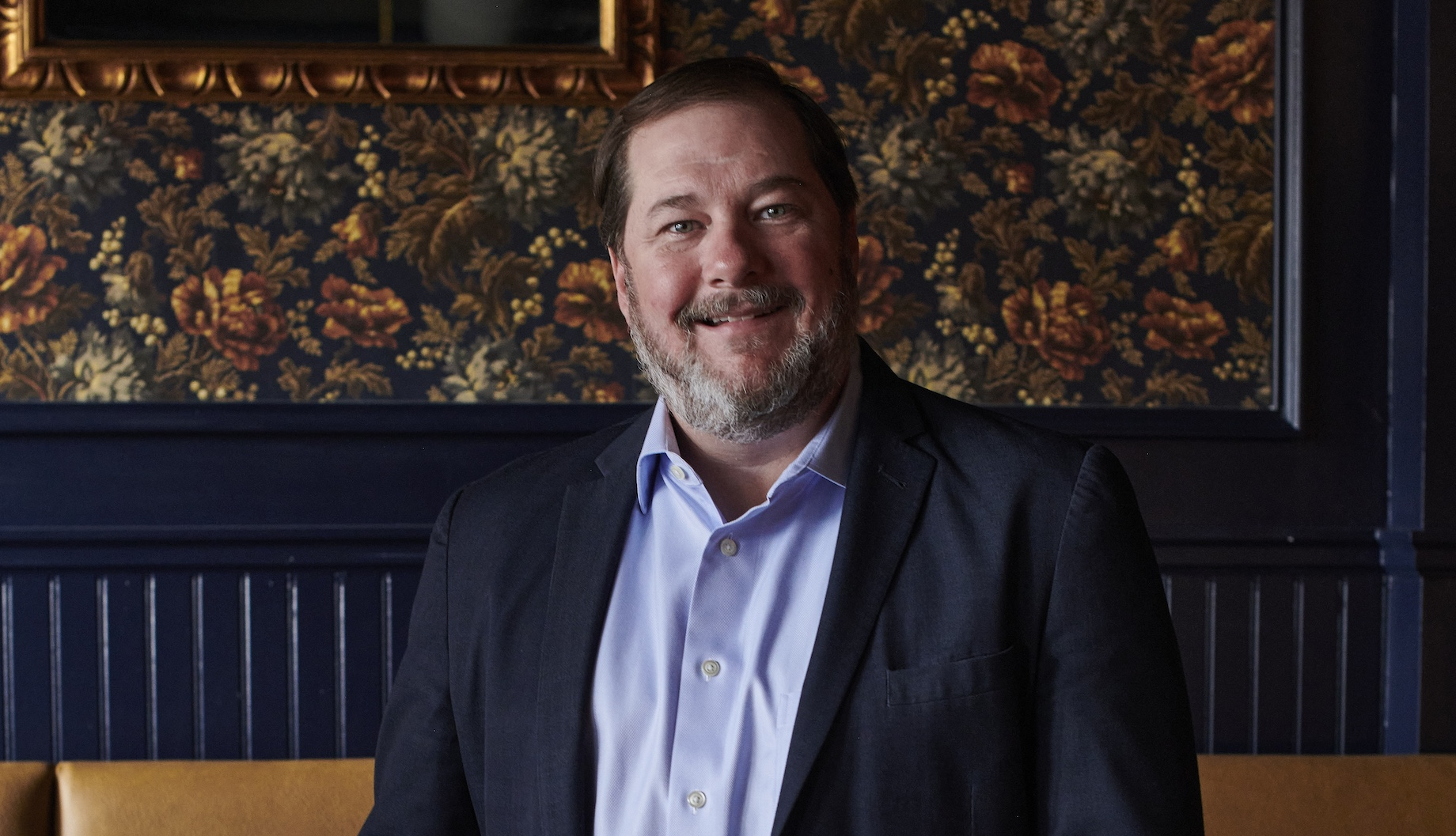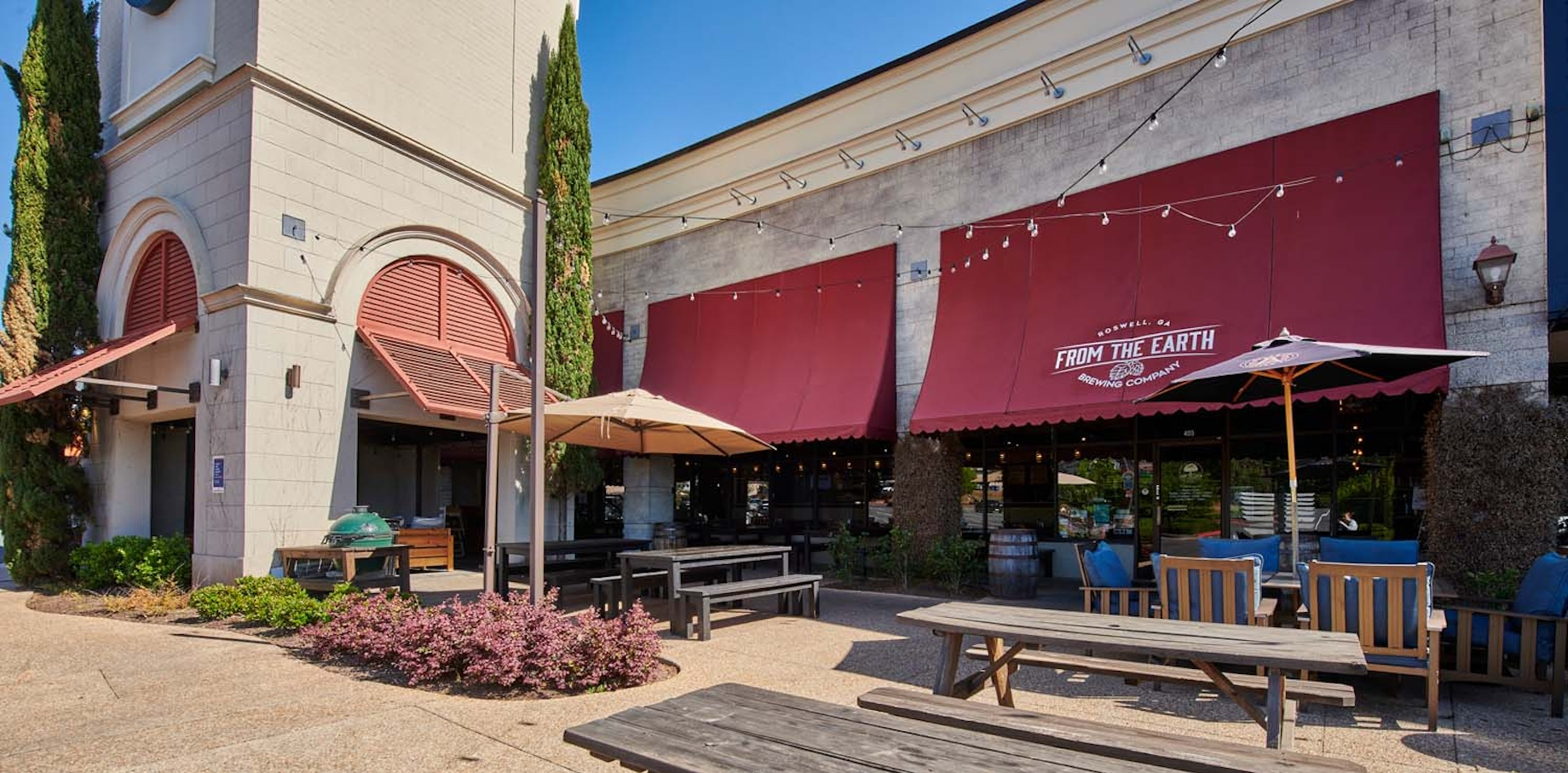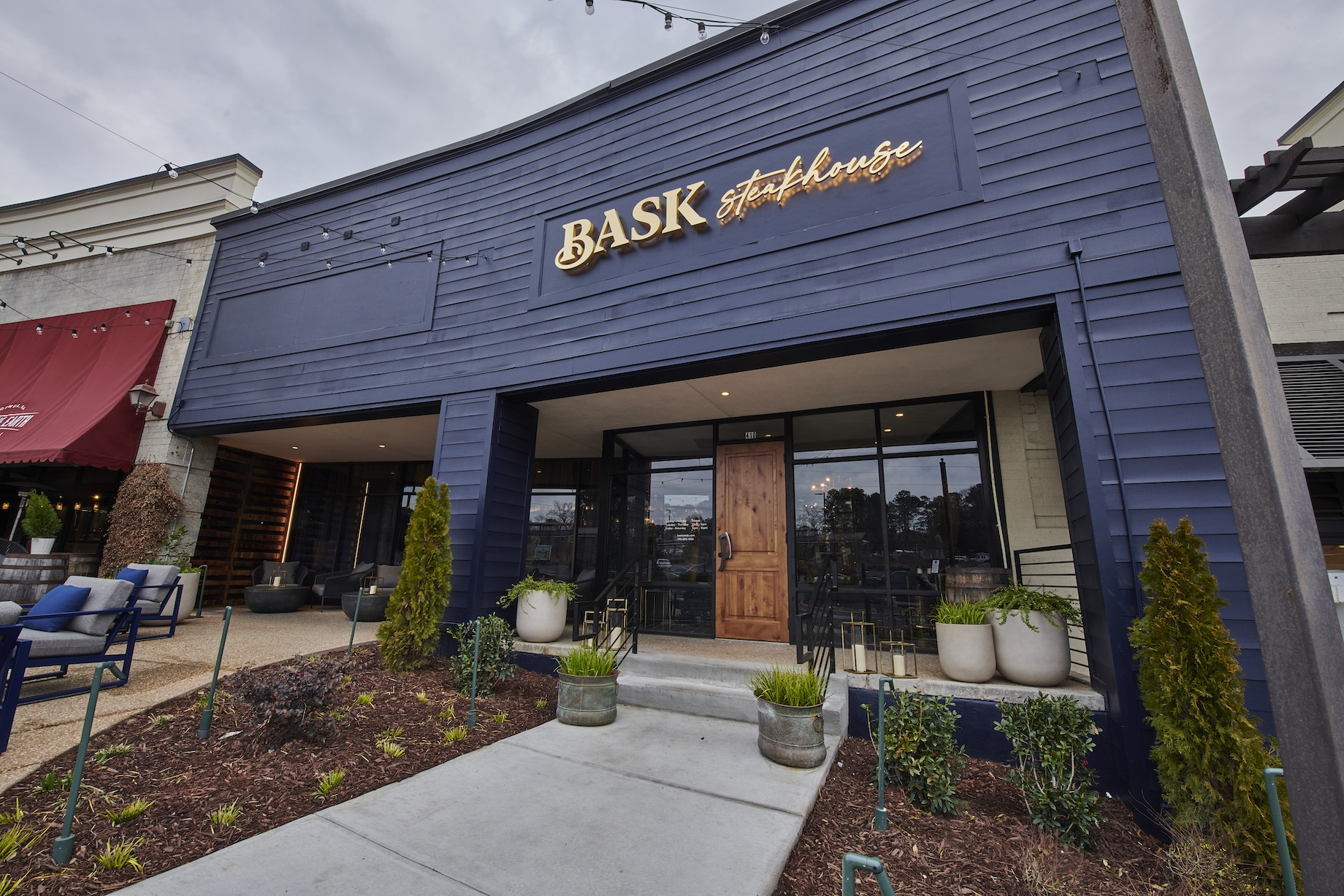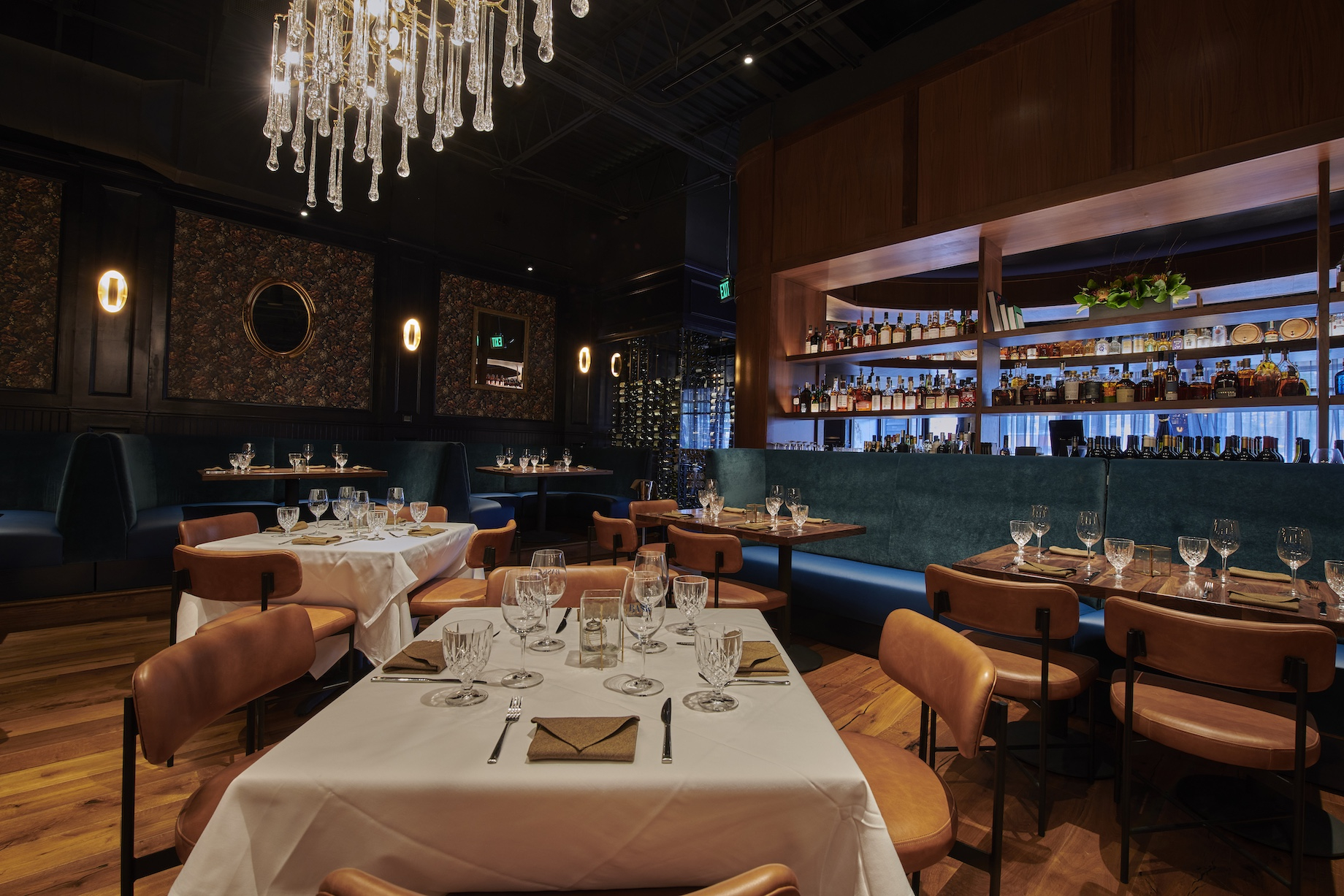From the time he was a preteen waiting tables at a retirement home, Tim Stevens’ goal was to own not just one but multiple restaurants. “The income of one restaurant is not great. Two is better,” he explained. But with all the headaches and hiccups of opening a new place, you need to “develop a little bit of amnesia,” the restaurateur laughed.
Over the decades, Stevens had accrued a wealth of experience in the hospitality industry. He made a name for himself as the youngest general manager at Buckhead Life Restaurant Group, an Atlanta hospitality company known for its high-end and diverse restaurants. Later, he opened a pizzeria and cafe in Birmingham, Alabama, which he sold before the 2009 downturn, and moved back to Georgia. There, among other things, he helped open the now-closed Cook Hall in the W Hotel Buckhead, now Colee hotel.
In 2017, Stevens ventured into restaurant ownership again, opening From the Earth Brewing Co., a locally sourced, chef-driven brewery in Roswell, Georgia. And in 2023, he opened the upscale Bask Steakhouse next door.
In this Q&A with ICSC Small Business Center contributing editor Rebecca Meiser, Stevens talks about the challenges and benefits of running two distinct restaurant concepts, the importance of community engagement for a restaurant’s success, and how a COVID-era idea evolved into a popular outdoor music series at Brixmor’s Connexion, the open-air retail center in Roswell, Georgia, that houses both restaurants.

Your chef-driven brewery, From the Earth, has been popular since its opening in 2017. Many restaurateurs, after seeing the success of one restaurant, would choose to replicate that same concept elsewhere. Why did you decide to pursue two completely different concepts?
My background is in fine dining steakhouses. I got out of that because I was tired of wearing a suit every day to work, so I created From the Earth. Then, four years into From the Earth, I’m like: I really miss wearing a suit and having that level of service and food. That’s when we started planning Bask. Really, steakhouses are my passion. From the Earth has been awesome. It’s been a lot of fun. You’ll get a great meal and cocktail, beer or wine, but Bask is an experience that’s an evening. I didn’t want to compete with the same clientele for the two restaurants next door to each other. I needed to differentiate them. Knock on wood, it has been working.

Tim Stevens, tired of wearing a suit to work, opened From the Earth Brewing Co. in Roswell, Georgia’s Connexion marketplace in 2017.

Once he started to miss wearing suits, he opened Bask Steakhouse next door. The two restaurants have different staffs and serve different clienteles.
What’s good and what’s challenging about overseeing two different concepts?
The good comes with having two different levels of restaurants. You’re never dead at both. There might be a concert or something going on in town or in Atlanta. If we only had From the Earth, that might really affect us, but we know that the upscale diners are still coming to Bask. Challenging is having two payrolls, two sets of bills. The fact that both restaurants have solid sales has just been lucky for me, but the negative is: if you’re off at both places, you’re hurting, you’re scrambling.
How do you divide your time?
Whatever fire is ongoing. I kind of manage them both at the same time. There’s no designated time I put toward one or designated time I put toward the other one. I’m there wherever I need to be.
What about staffing and managing?
We have two completely different teams. I’ve got a From the Earth team and then a Bask team. They’re so different that we don’t switch back and forth. You’re either a From the Earth employee or a Bask employee. That was my rule from Day 1, and it has worked. From the Earth has so many events going on all the time that I need a full management team there. And Bask — you’ve got to have that manager presence. They need to be doing table visits. They’ve got to be present and handle any issues. So between the two, we have two completely different teams. Altogether, we have about 70 employees between the two concepts.

From the Earth Brewing Co. features a lot of events, while Bask Steakhouse, above, requires high-touch service. Thus, each has its own management team.
Is it helpful that the two so close together?
Extremely. They’re connected. You just walk down a hallway right into the other one. For my second restaurant, I couldn’t have thought of a better way. And the overhead is lower, too. Everything’s right there.
How did you get connected to the space?
I was friendly with the people in that space before. They told me: “We’re moving out.” So I reached out to the landlord, [Brixmor]. I wasn’t sure at first what I was going to do with the space. I thought maybe I’d use it for From the Earth private events, but then, I was like: Let’s do a whole different concept and really kind of change it up. We got a great design team to come in and help me redesign the space. It turned out beautifully.
Did you sign the lease before COVID?
I want to say it was right in the beginning of COVID. I’m the only idiot in the world that was expanding during that time. I don’t know what my investors were thinking, but they just kind of gave me the thumbs-up and said go for it. But it turned out wonderfully. I know we probably paid about 20% more for the buildout, just because everything was through the roof at that point, but the way we opened up, it was well worth it.
Talking about COVID, during the pandemic, retailers and shopping centers faced challenges in finding safe ways to attract and engage customers. This led to several innovative ideas, such as exercise classes in parking lots and takeout drink kits. You initiated the large Back Porch Concert Series in the From the Earth parking lot, and it’s still ongoing. Was music always in your wheelhouse?
Live music has always been part of the business plan at From the Earth. I love music. I was a bit of a promoter when I was running the W Hotel. We had weekly music there. I really got tied into the Atlanta music scene back in the 2010s to 2015. As I was planning for From the Earth, I was like: What goes better than beer and music? Music really fit the concept and the theme, so we started doing concerts at From the Earth. The brewery fits about 100 inside, though we always took some tables away when we set up the stage. We’d lose a little bit of the seating, but it turned out great with other sales.
During COVID, people just wanted to get out, maybe not even socialize, just get out of their house. So I started thinking about how we could maybe do a concert to help with that. I was like: Let’s do a drive-in. We already had connections in the music scene. We did a drive-in concert, and it was great — the first show was about 80 guests — only the sound was not awesome. So as the restrictions lessened, we had people sit outside in parking spaces where they could still social distance. The community loved it. It grew to about 400 guests.
How did your neighbors react?
As it grew, there was one business who did not like what we were doing, even though they closed three hours before we started. I don’t know what the issues were, but they complained. We had to stop. That’s when Brixmor, [the landlord], came to me. They said: “We have a parking lot directly behind the restaurant in the PGA Superstore parking lot.” They asked: “Would you be interested in doing the concerts there?” And I was like: “Yeah, perfect.”
How did you make money on the series?
I purchased a food truck in the beginning of COVID so we could do neighborhood events and things like that. We had a beer truck, as well, where you could pour tap beers.
The series has continued since COVID. Does it look the same?
Yes, except today we pay for the parking lot. Brixmor cut me a fantastic deal. They like what I’m doing because I’m bringing new guests into the shopping center. I don’t want to take all the credit for this, but I do think we have a lot to do with the fact that our travel rate [in terms of the people coming from outside of the town to the center] has improved year over year in double digits. And it’s good for us, too. We still have the food truck and the beer truck. We also created a little venue back there where we could do food-and-beverage. Then we have a VIP section, as well, that has its own bar. We can hold up to 1,000 guests. And there are spillover effects, too. On the days we’re having concerts, we see huge increases at both restaurants. We increase about 20% for our places on concert nights just in sales. So not only are we taking care of the guests that just come to the concert and want to eat a little snack, we and all the other restaurants in the center are benefiting from our concerts because they’re going over there to eat first.
General tickets cost about $35, and then there is the VIP upgrades. Have you been making money off the tickets?
In the music industry, people just think you make tons of money. Honestly, we probably have made $0 on ticket sales. Our production costs out back are incredibly high. It’s about $12,000 a night just for the production and then the musicians on top of that. So that’s anywhere from $15,000 to $20,000. All in, it’s a $30,000 to $40,000 bill just for infrastructure. If I could come close to covering that cost on ticket sales, then great. If not, we have a little overhead out there and we have to compensate that with the food-and-beverage. Not every week is great because some weeks just don’t sell, but overall, it has been better than not. Plus, this is a great community gathering space. It’s great to see everybody just hanging out and talking to each other.
What role does community engagement play in your business strategy?
It’s very, very, very important. Honestly, up until COVID, I didn’t really get it as much. But in my original business plan, we called From the Earth a neighborhood gathering spot, and that’s really what our place has become.
By Rebecca Meiser
Contributor, Commerce + Communities Today and Small Business Center